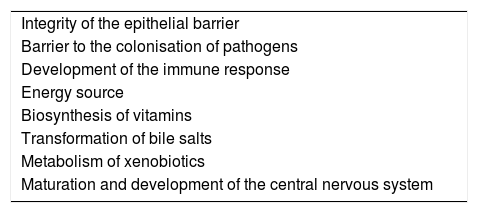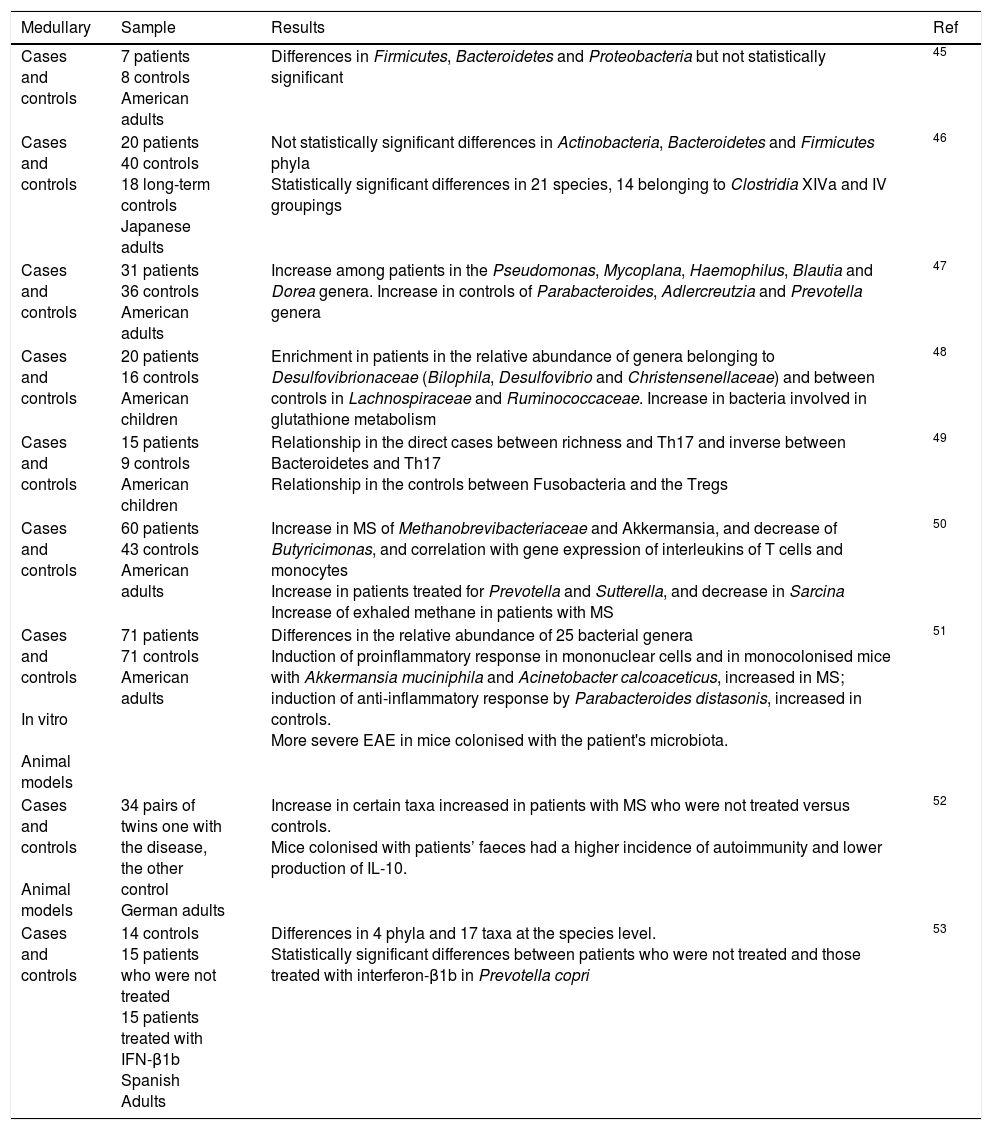In recent years there has been a revolution regarding the role of the microbiota in different diseases, most of them within the spectrum of inflammatory and autoimmune diseases, associated with the development of metagenomics and the concept of holobiont, a large organism together with its microbiota. Specifically, in Multiple Sclerosis, multiple evidence points to the role of the microbiota in experimental autoimmune encephalomyelitis, animal model of the disease, and several articles have been published in recent years about differences in intestinal microbiota among patients with multiple sclerosis and control subjects. We review in this article the concept of holobiont and the gut microbiota functions, as well as the evidence accumulated about the role of the microbiota in experimental autoimmune encephalomyelitis and multiple sclerosis. Nowadays, there is a lot of evidence showing the role of the microbiota in the genesis, prevention and treatment of experimental autoimmune encephalomyelitis based mainly on three immunological pillars, the Th1–Th17/Th2 balance, the Treg cells and the humoral immunity. It is also well documented that there are differences in the microbiota of patients with MS that are associated with a different expression of genes related to inflammation.
En los últimos años se ha producido una revolución en torno al papel de la microbiota en diferentes enfermedades, la mayoría dentro del espectro de las inflamatorias y autoinmunes, asociado al desarrollo de la metagenómica y al concepto de holobionte, entendido como el conjunto formado por los organismos superiores y su microbiota. Concretamente, en la esclerosis múltiple, existe múltiple evidencia acerca del papel de la microbiota en la encefalomielitis autoinmune experimental, modelo animal de la enfermedad y se han publicado en los últimos años diversos artículos acerca de las diferencias en la microbiota intestinal entre pacientes enfermos de esclerosis múltiple y sujetos control. En este artículo revisamos el concepto de holobionte y las funciones de la microbiota dentro del mismo, así como la evidencia acumulada en el papel de la microbiota en la encefalomielitis autoinmune experimental y en la esclerosis múltiple. A día de hoy, existe una amplia evidencia científica del papel de la microbiota en la génesis, prevención y tratamiento de la encefalomielitis autoinmune experimental en base fundamentalmente a tres pilares inmunológicos, el equilibrio Th1-Th17/Th2, las células Treg y la inmunidad humoral. Así mismo está bien documentado que existen diferencias en la microbiota de pacientes con EM que se asocian a una diferente expresión de genes relacionados con la inflamación.
Artículo
Comprando el artículo el PDF del mismo podrá ser descargado
Precio 19,34 €
Comprar ahora








